
Africa Minigrids Programme
Renewable energy minigrids, particularly solar-battery systems, could provide electricity to 733 million people globally, including 567 million in sub-Saharan Africa.The Africa Minigrids Programme (AMP), funded by the Global Environment Facility and implemented by UNDP, RMI and the African Development Bank, is a US$50 million programme aimed at stimulating the solar battery minigrids market to expand electricity access in 21 African countries.
AMP provides technical assistance to national partners and promotes regional coordination through RMI’s Energy Transition Academy. The programne aims to build 110,000 minigrids, powering 200,000 schools, clinics and 900,000 businesses, driving economic growth.
Find out more here.
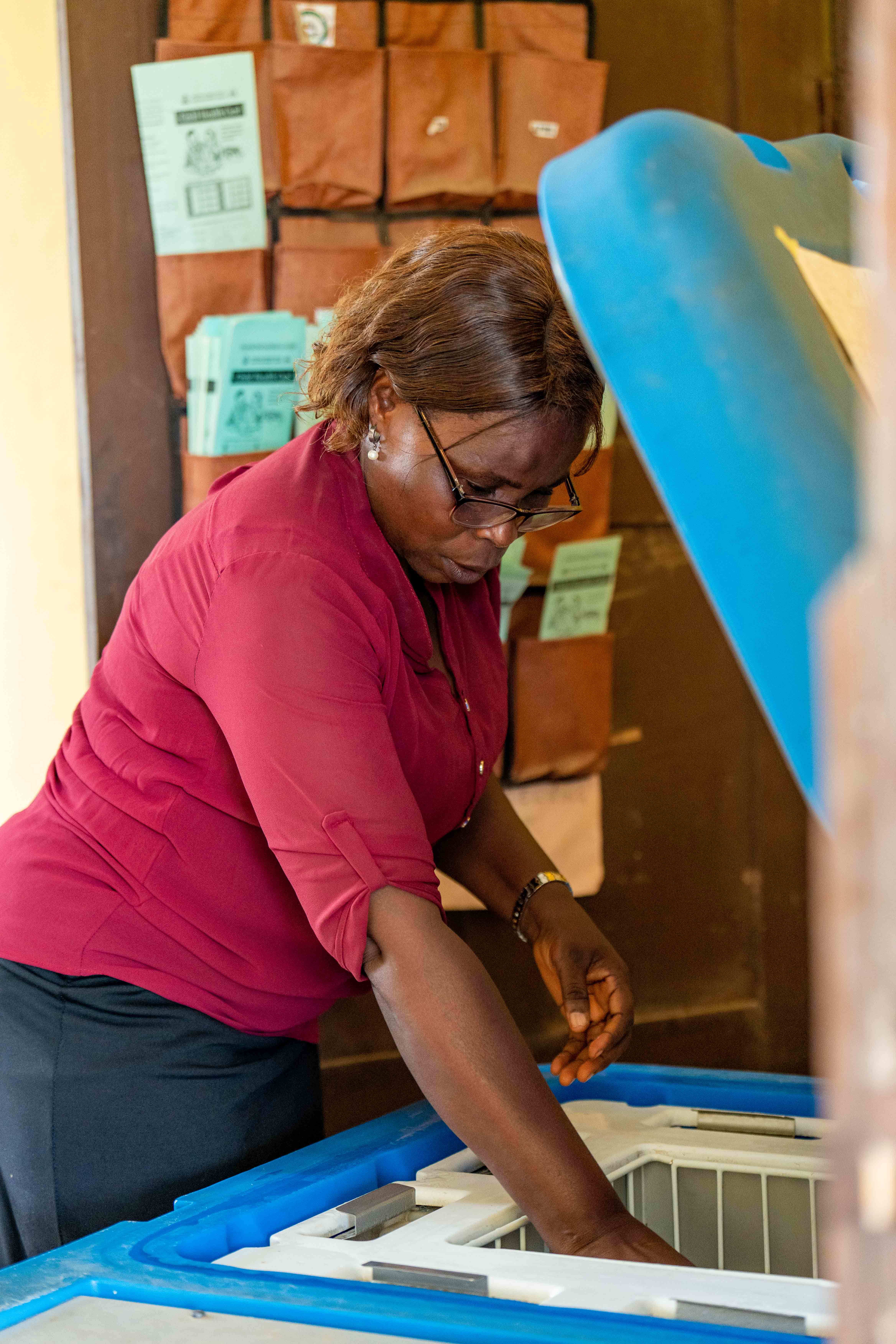
Sorinola Adebisi, nurse, pharmacy technician and local government staffer at the Mokoloki Health Centre stocking the fridge with vital medicines.
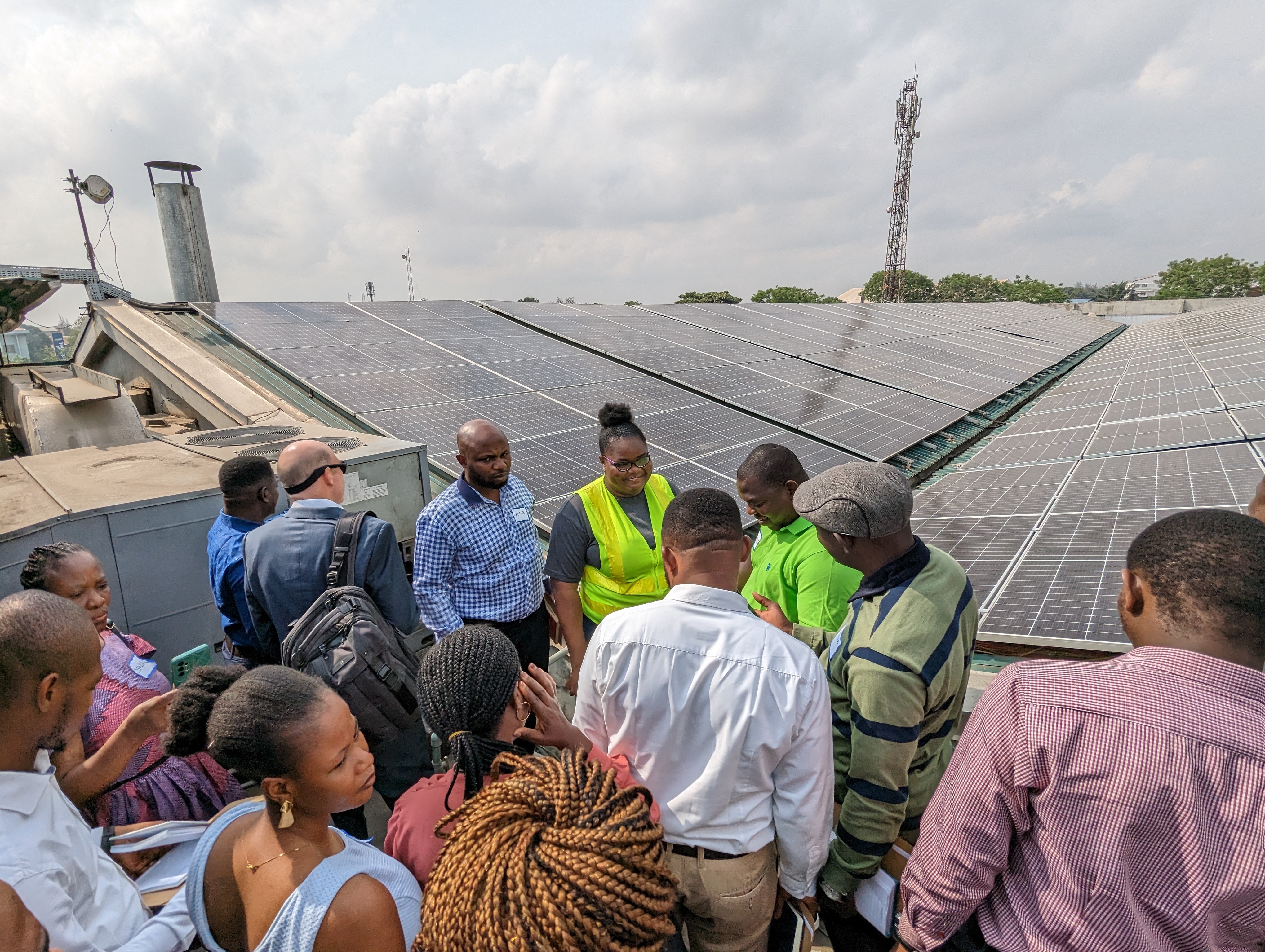
RMI Energy Transition Academy Fellows during a site visit to a minigrid project in Nigeria.
Catalytic Climate Capital
RMI's Catalytic Climate Capital (C3) initiative scales investment in the clean energy transition in the Global South through private, public and philanthropic partnerships.C3 addresses the need for scalable, sustainable investment in the regions most vulnerable to climate change and where emissions growth is projected to be highest. The International Energy Agency estimates that annual investments in these regions must triple by the early 2030s to align with the Paris Agreement and currently, only 30% of this need is being met.
C3 tackles critical barriers to investment and project development such as project risks, economic instability, currency fluctuations and limited local capacity.
Find out more here.
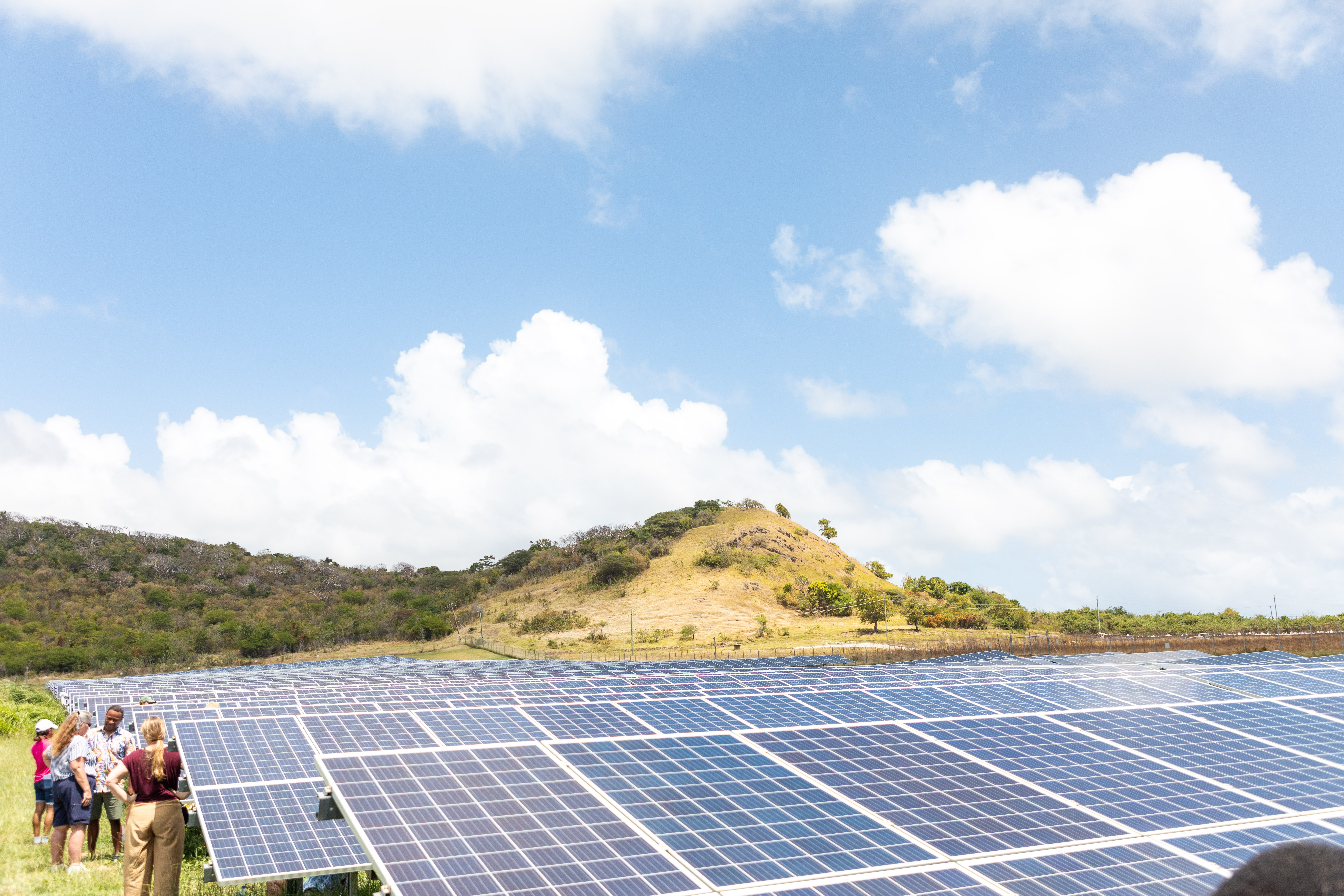
Saint Lucia’s first utility-scale solar farm, developed with RMI’s support.
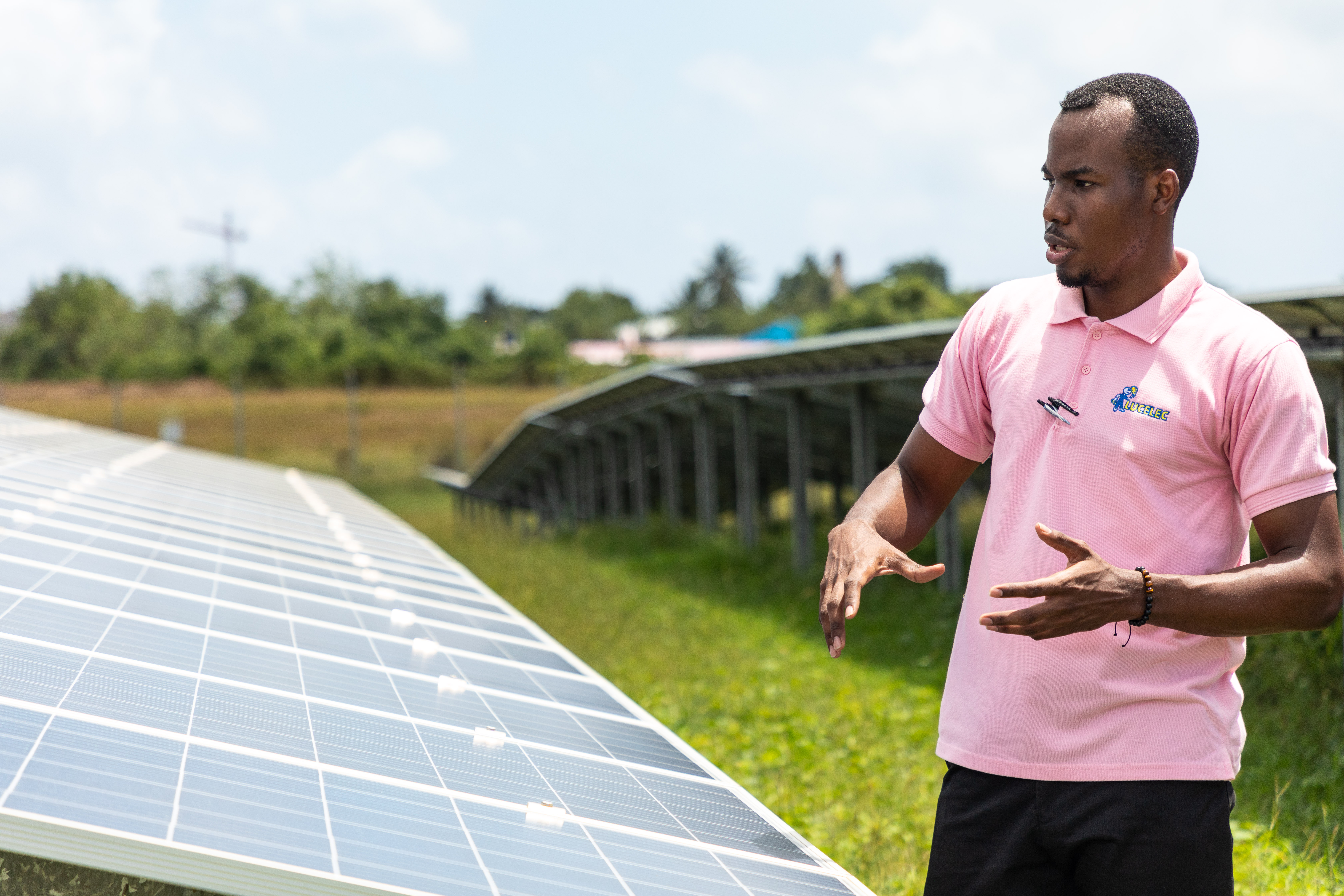
Lincoln Francis, Trainee Engineer for Saint Lucia's Electricity Services Limited.
Energy Efficiency for Climate Goals
RMI carries out research in energy efficiency in collaboration with partners around the world to prove that a global transition to renewable energy is within reach while providing decision-makers with guidance to get there sooner.Today's energy system wastes over two-thirds of global production, causing $4.5 trillion in economic losses and significant health, climate and environmental damage. Replacing fossil fuels with renewable energy and electrification, which are two to four times more efficient, is key.
Enhancing efficiency across products, buildings, factories and broader systems like cities and supply chains can accelerate the energy transition. A whole systems approach to energy efficiency, alongside renewables, will make the transition faster, more affordable, equitable and aligned with critical climate goals.
Find out more here.
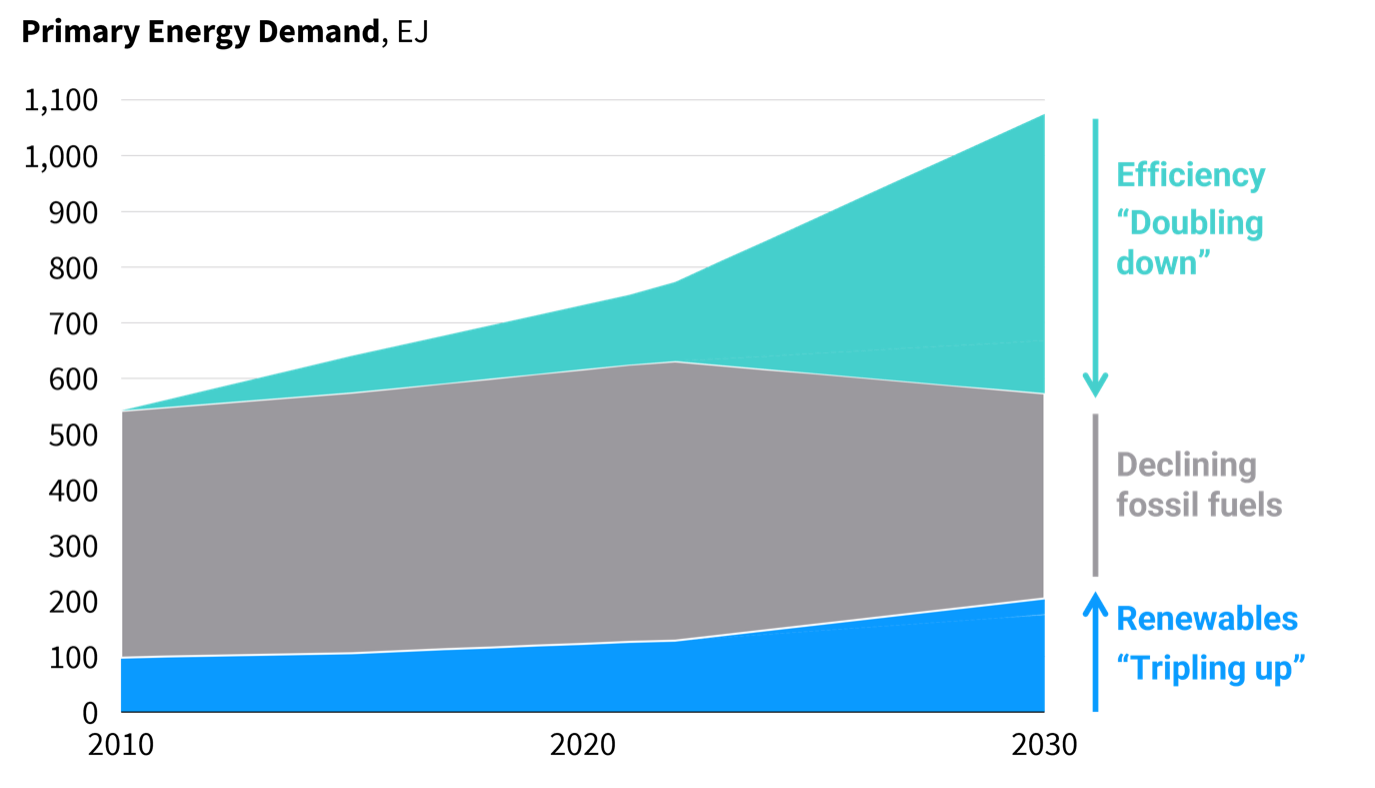
Efficiency is essential to help get the most from renewable energy, which can rapidly replace costly fossil fuels and cut climate pollution.
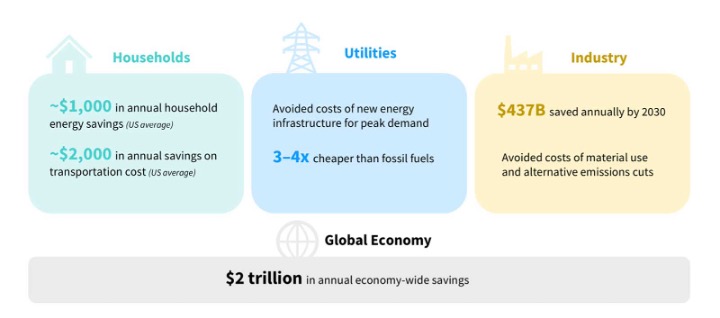
Compounding rewards: Efficiency saves money by reducing energy use now. In the long term, it also cuts the need for new infrastructure.
Mapping Methane Emissions
RMI is seeking to cut global methane emissions by a third by 2030. We will do so by targeting two of the top sources of man-made methane emissions: oil and gas operations and municipal solid waste.By working with a network of satellite and sensor operators to make methane emissions visible in near-real time, this emissions information can be used to drive policy decisions, industry action and market incentives to reduce this super pollutant inexpensively and at scale.
In partnership with Bloomberg Philanthropies, EDF, Carbon Mapper and others, RMI is building sophisticated data analytical models and web tools with methane satellite imagery and helping industry accurately report and target their emissions.
Find out more here.
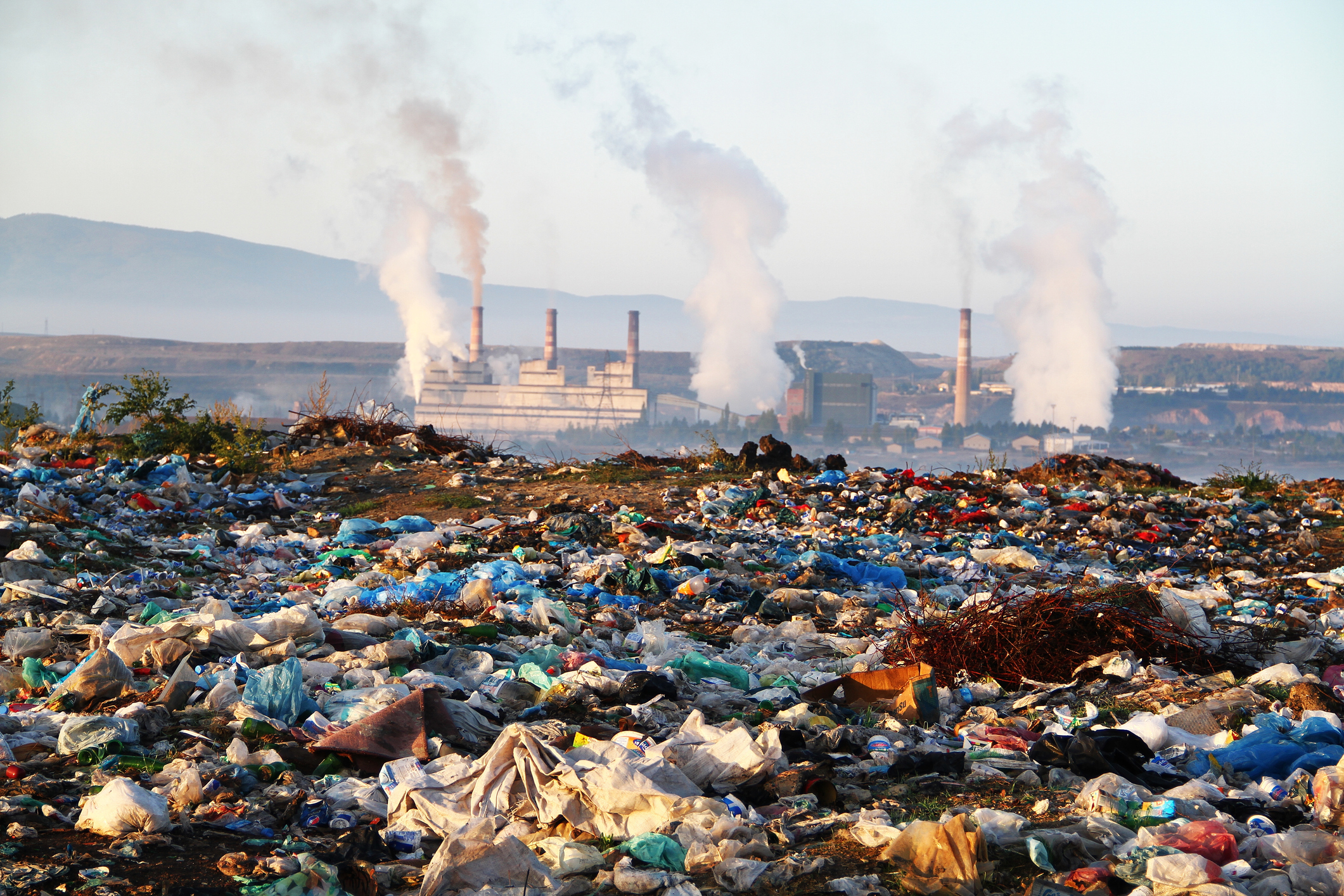
Methane is a super potent greenhouse gas, with 80 times the warming impact of CO2.
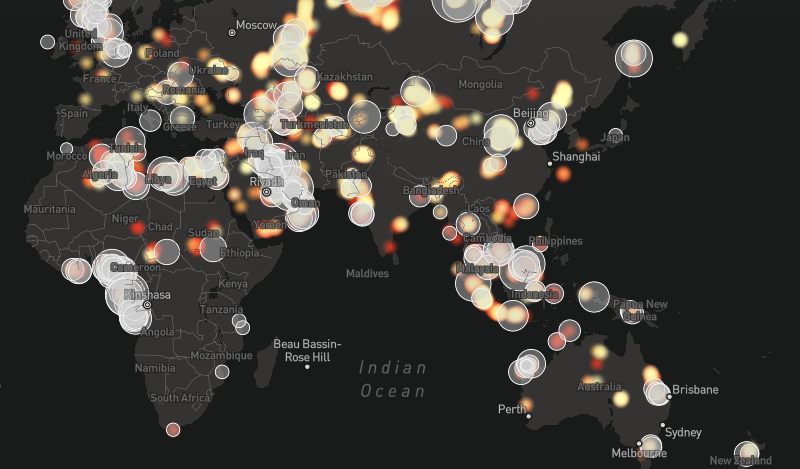
Satellite detection helps identify and fix methane hot spots, such as major leaks from landfills, oil and gas sites and industrial plants.
Sharing the Power Initiative
Growing rural electrification and development efforts across sub-Saharan Africa increasingly include minigrids as a key component. RMI's Sharing the Power Initiative is a community-private partnership model designed to scale access to reliable, clean electricity across sub-Saharan Africa.One of its key focuses is deploying minigrids – small, self-contained energy systems that serve communities, paired with Battery Energy Storage Systems to store excess energy, ensuring consistent power supply.
In Nigeria, RMI has implemented four community-led minigrid projects, delivering clean, affordable electricity to six communities across four states. These projects provide reliable power to 5,000 people, benefitting 844 families.
Find out more here.
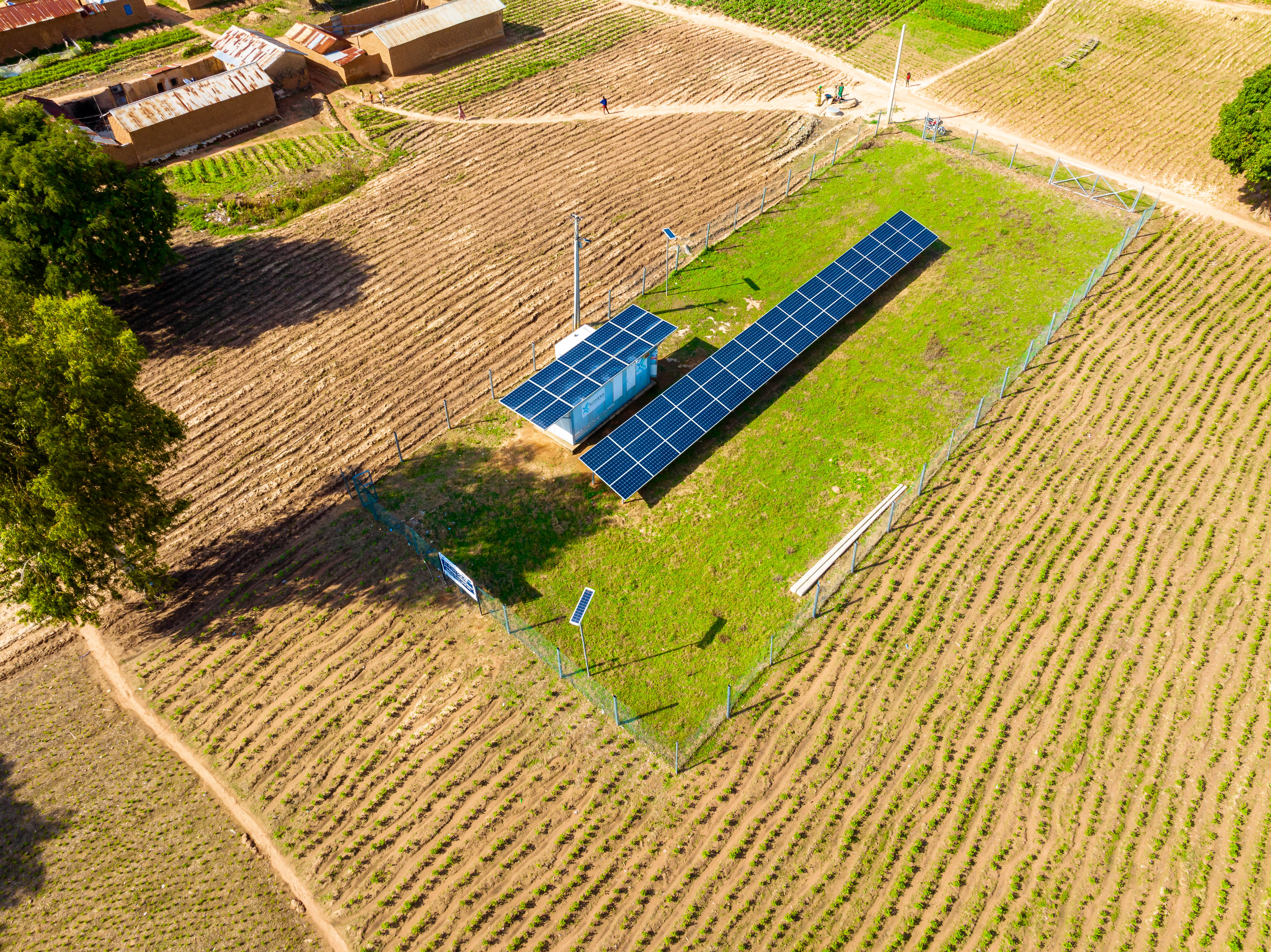
Nigeria, Chikaji Gwari Minigrid with 21.9kWp solar PV, 87kWh of LfP battery storage.
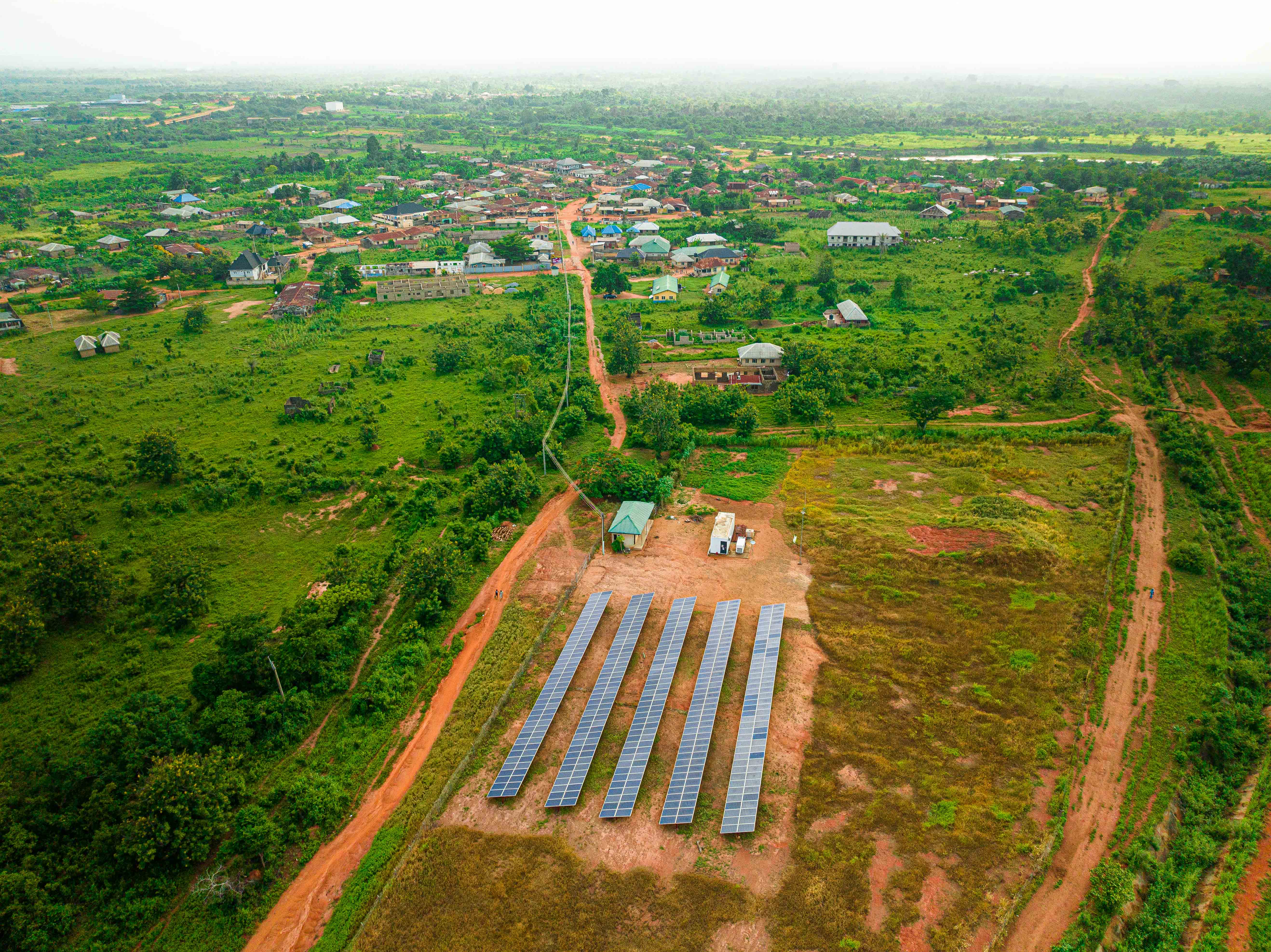
Nigeria, Mokoloki 100kWp solar Community Minigrid.
Shoony Zero Pollution Mobility Campaign
Led by the NITI Aayog and RMI, the Shoonya Zero-Pollution Mobility campaign is a pioneering initiative aimed at accelerating the adoption of electric vehicles (EVs) within the ride-hailing and last-mile delivery segments in India.With a cohort of over 220 corporate partners; several consumer awareness campaigns and innovative tools, Shoonya is driving the transition to a cleaner, greener transportation ecosystem across the country while enhancing public health and contributing to the nation's sustainability goals.
Since its launch in 2021, the Shoonya campaign has engaged over 100 million citizens, saved ₹597 crore in fuel, reduced 61,000 tonnes of CO2 emissions and facilitated 574 million zero-pollution rides and deliveries.
Find out more here.

Shoonya's corporate partner cohort has grown from just 35 companies in 2021 to over 220 in 2024.

The cumulative impact of the Shoonya campaign is equivalent to planting approximately 1.1 million trees.
The Energising Agriculture Programme
Agriculture is central to rural Nigerian communities, where distributed energy resources (DERs) are often the most affordable electrification option.The Energising Agriculture Programme, co-led by the Nigerian Rural Electrification Agency and RMI, with support from the Global Energy Alliance for People and Planet, scales productive uses of DERs by:
- Developing a pipeline of agriculture-energy projects.
- Boosting agriculture-energy business models via the Innovation Accelerator, with teams piloting private-led approaches to electrifying milling, cold storage and mobility using clean minigrid electricity.
If scaled, these efforts could create 150,000 jobs and cut 7.4 million tons of CO2 by 2030.
Find out more here.
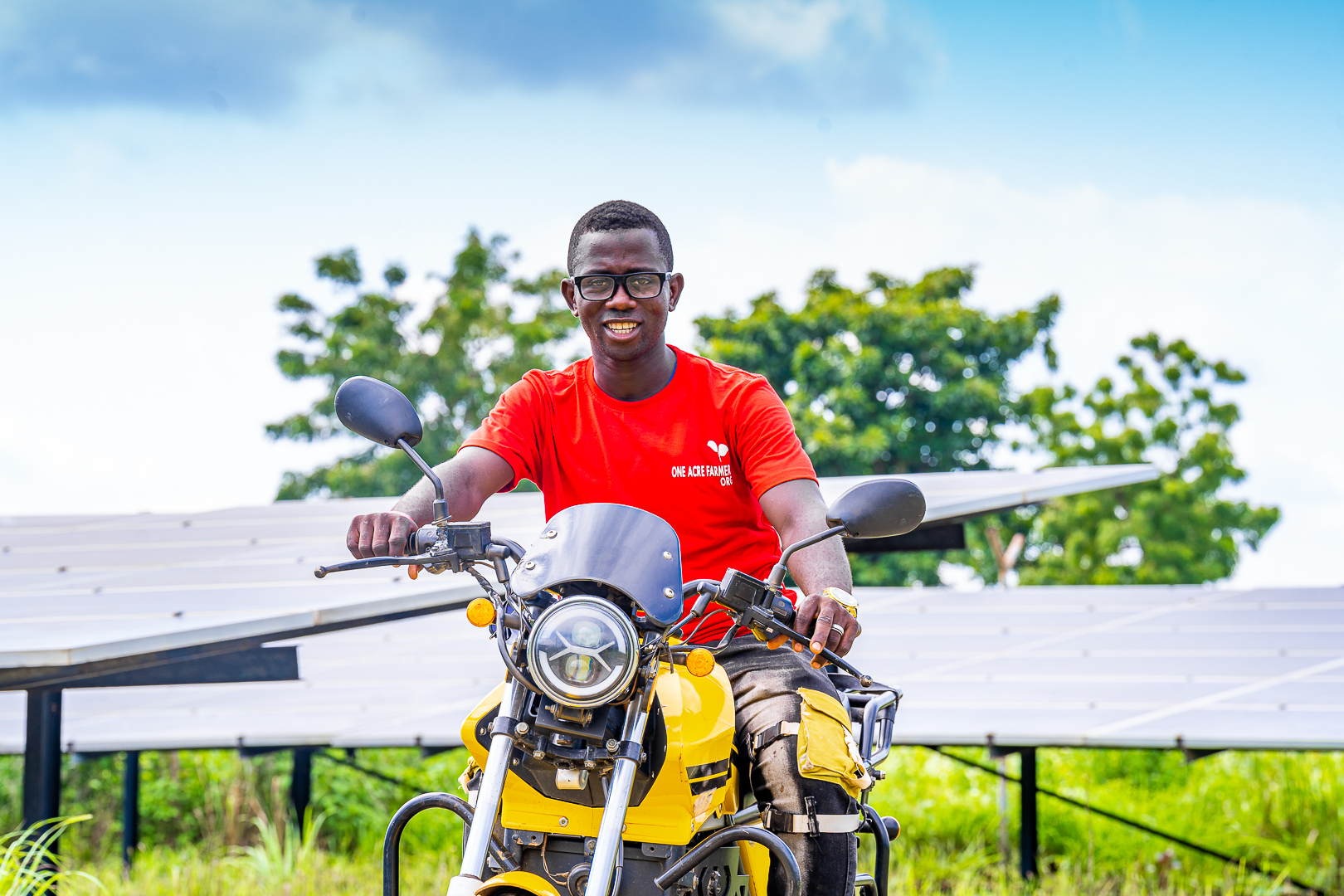
One Acre Fund field officer Kabiru Adamu on his electric motorbike after charging at the solar minigrid in Gwam Village, Niger state, Nigeria.
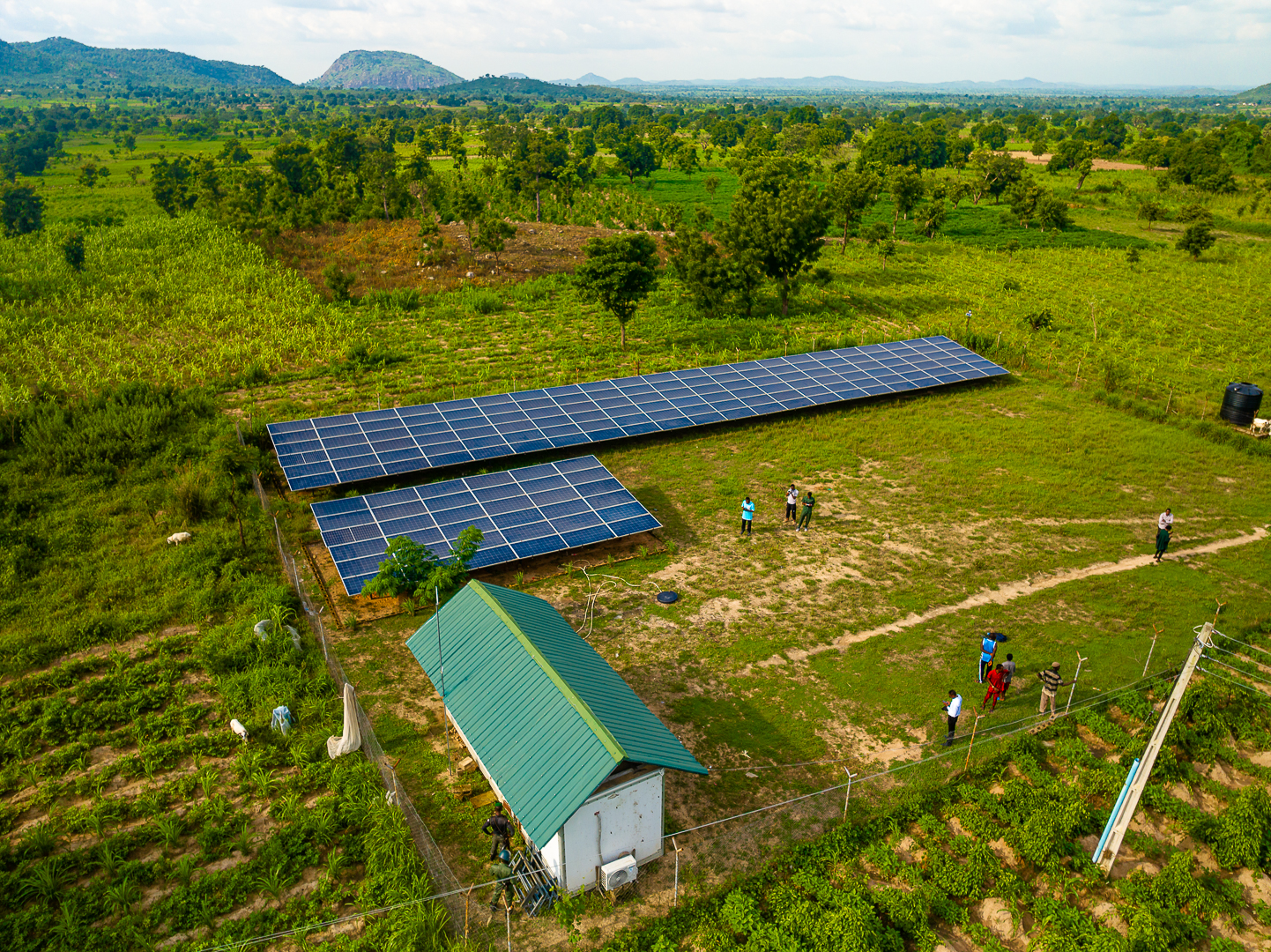
Drone footage of a minigrid in Gwam, Niger state, Nigeria.
Third Derivative
Third Derivative is a global climate technology accelerator and RMI’s innovation engine.Third Derivative accelerates the global clean energy transition by guiding and supporting climate tech entrepreneurs. Through a vast network of experts, corporate partners and investors, Third Derivative helps startups go to market faster with their breakthrough ideas, create real impact and transform markets.
Find out more here.
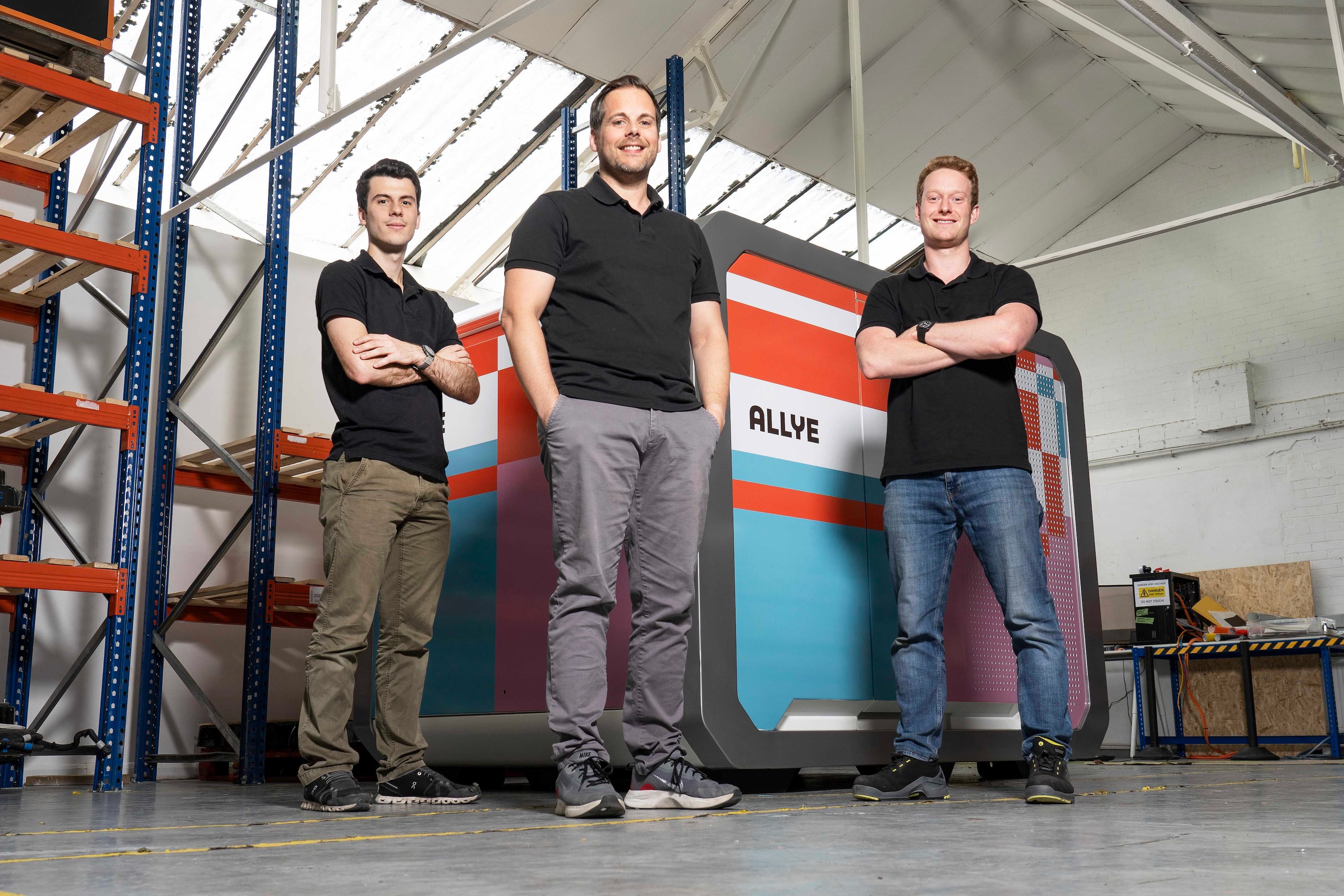
Allye Energy showcases the Allye MAX, an advanced 320kWh battery storage system using repurposed electric vehicle batteries.
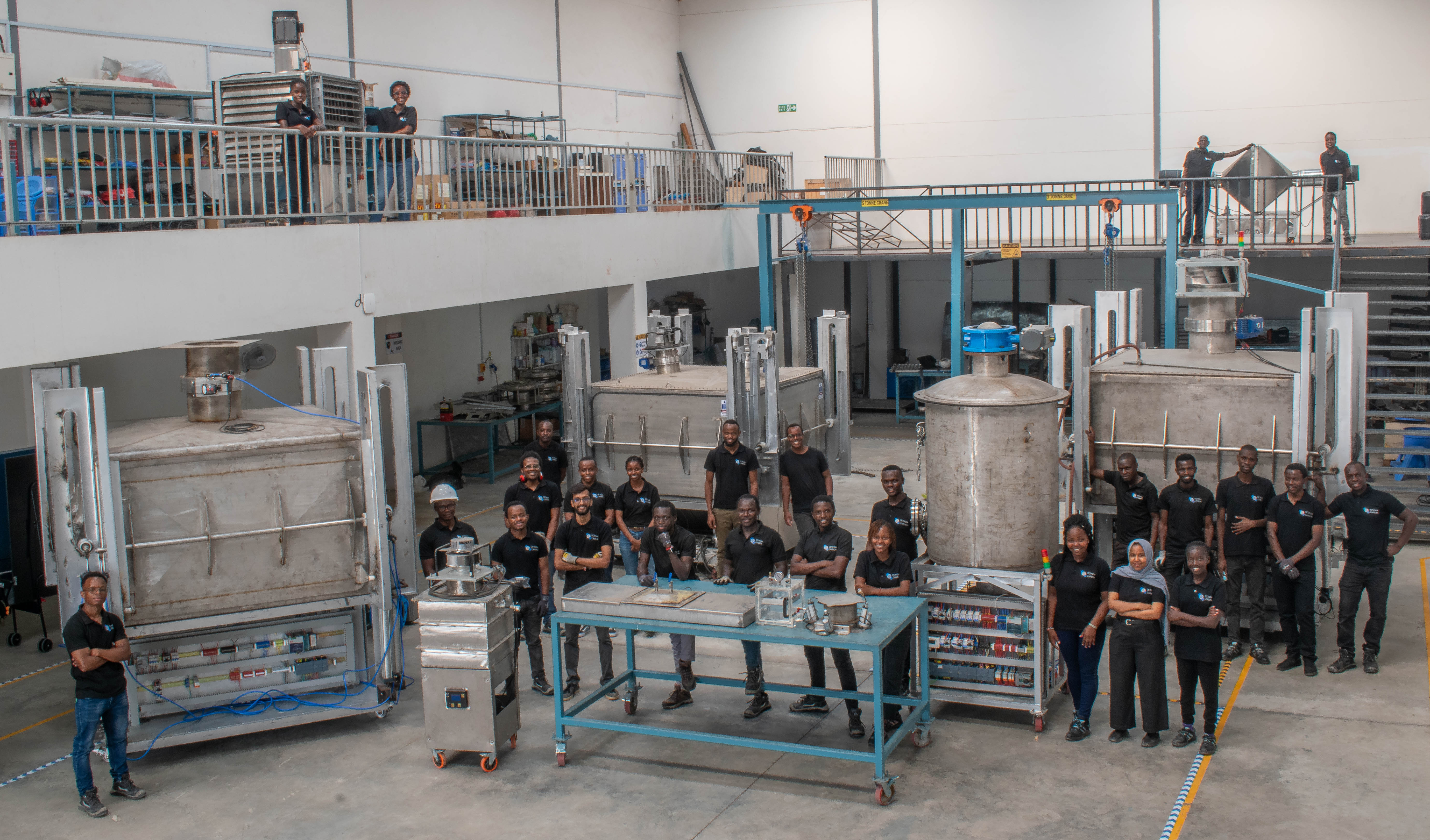
Octavia Carbon with its geothermal-integrated direct air capture process that filters CO2 from the air using waste heat in Kenya.